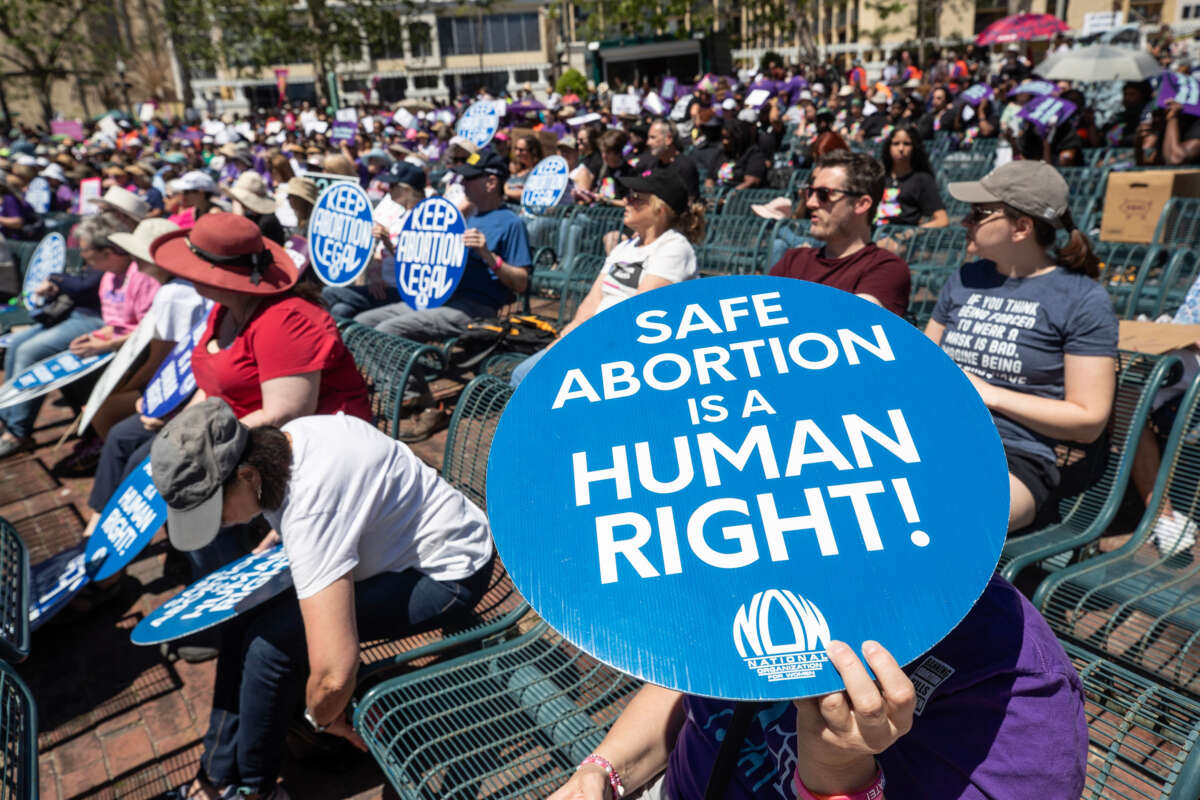Support justice-driven, accurate and transparent news — make a quick donation to Truthout today!
A six-week abortion ban is set to be fully implemented in the state of Florida later this week.
The ban, which was deemed enforceable by the state Supreme Court earlier this month, contains limited exceptions, allowing a pregnant person to obtain the procedure in cases of rape, incest and human trafficking but only for up to 15 weeks of pregnancy.
The ban also supposedly allows abortion in cases where a person’s life is at risk. However, such standards are often disregarded in states with similar exceptions due to health care providers fearing legal repercussions if their actions are not deemed life-saving by the state.
Notably, six weeks is so early on in a pregnancy that many people are not yet aware they are pregnant.
Up until this week, Florida had a 15-week ban, which became enforceable in 2022, after the Supreme Court upended federal abortion protections that were established in Roe v. Wade. Following the overturn of that standard, Florida, like many other states in the south, passed a draconian six-week ban, which was immediately challenged by abortion rights proponents, resulting in its delay until now.
Florida’s six-week ban, which will go into effect on Wednesday, May 1, will have devastating impacts on people both within and beyond state lines. Florida’s 15-week ban — still restrictive but less so than laws in other states in the region — allowed for residents of neighboring states to travel to Florida in order to obtain the procedure.
Almost every state in the South has either a six-week ban or a near-total ban on abortion. North Carolina has a 12-week ban, but a 72-hour waiting period makes it difficult and less appealing for out-of-state patients to travel there.
Statistics from the Guttmacher Institute showcase just how important Florida’s previous law on abortion, though flawed, was to people in that region: In 2023, around one in every three abortions in the South took place in the Sunshine State.
Now, southerners will have to travel even greater distances to obtain an abortion. A person living in Huntsville, Alabama, for example, would have to travel north to Illinois in order to get an abortion after 15 weeks of pregnancy.
Floridians will have the opportunity to change the six-week ban later this year, as a constitutional initiative is set to appear on the ballot in November’s elections. That amendment, if passed, would legalize the procedure up to fetal viability, typically viewed to be around 22-25 weeks of pregnancy, and would protect access to abortion thereafter to preserve the life and health of a pregnant person, as determined by a health care provider.
Passing the amendment is no easy task — in order to change the state constitution through a ballot initiative, a proposal must attain 60 percent of the total initiative vote.
Recent polling suggests that organizers are very close to that number. A USA Today/Ipsos poll conducted earlier in April found that 57 percent of Florida residents are in favor of expanding abortion rights up to fetal viability, while 6 percent said they are unsure. Only 36 percent said they would oppose such a change.
Trump is silencing political dissent. We appeal for your support.
Progressive nonprofits are the latest target caught in Trump’s crosshairs. With the aim of eliminating political opposition, Trump and his sycophants are working to curb government funding, constrain private foundations, and even cut tax-exempt status from organizations he dislikes.
We’re concerned, because Truthout is not immune to such bad-faith attacks.
We can only resist Trump’s attacks by cultivating a strong base of support. The right-wing mediasphere is funded comfortably by billionaire owners and venture capitalist philanthropists. At Truthout, we have you.
Truthout has launched a fundraiser to raise $41,000 in the next 7 days. Please take a meaningful action in the fight against authoritarianism: make a one-time or monthly donation to Truthout. If you have the means, please dig deep.
